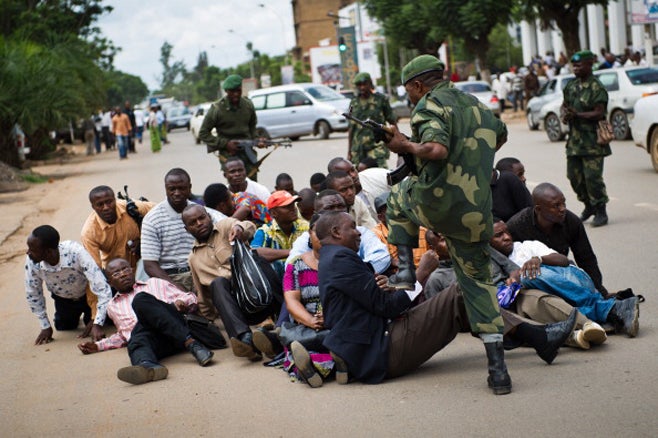By: Jessica Ties
Impunity Watch Reporter, Asia
BEIJING, China- Chinese officials have announced that rights lawyer Gao Zhisheng, who has been missing for almost two years, will be forced to serve three years in prison for allegedly violating the terms of his probation.

Gao was arrested and sentenced to probation in 2006 for defending practitioners of Falun Gong which is a banned religion in China. After being sentenced Gao disappeared three times and, in the period between his disappearances, informed reporters that he had been tortured.
He reported that he had been beaten with electric batons and handguns. He also reported that he had been forced to sit still for sixteen hours with a hood over his head while being told to forget that he was human and threatened with death.
Human rights activists have been angered by the announcement of the revocation and have used it to illustrate the abuse faced by dissidents in China.
They emphasize that although missing for twenty months, the Chinese government had maintained that Gao Zhisheng was free on probation since 2006. Some believe that the recent revocation indicates that the lawyer has secretly been in state custody despite claims by authorities that they were unaware of his location.
Renee Xia, a director of Human Rights Directors, asserts that the courts revocation “…is the clearest acknowledgement to date by the Chinese government that it has secretly detained Gao for the last twenty months despite its repeated denials.”
Chinese authorities have not identified what probation violations were committed by Gao but it is known that his five year probation would have expired earlier this week prompting some to believe that the government re-imprisoned him solely to prevent him from being freed.
Gao Zhisheng’s brother, Gao Zhiyi reported that he has not seen his brother since April 2010 and fears that he may be dead.
This fear has been substantiated by Nicholas Bequelin, a researcher for Human Rights Watch, who stated that “[t]he people who saw him more than twenty months ago described him as a ghost. We have absolutely no details about his condition now.”
Chinese authorities have been pressured by Western nations and the United Nations to release Gao but have refused to do so.
In response to international concern, the spokesman for the Chinese Foreign Ministry has stated that other nations do not have the right to interfere in China’s internal affairs.
For more information, please see:
China Daily – China Opposes Interference in Legal Case – 23 December 2011
The New York Times – China Revokes Probation of Missing Human Rights Lawyer – 16 December 2011
The Washington Post – China Jails Lawyer Gao Zhisheng for Three More Years, Confirming Status After Long Disappearance – 16 December 2011


